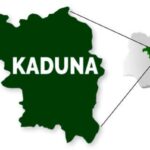Typical of many a ruling class – especially in a developing society, they often do not respond on real time basis to the incipience of crisis, until things get out of hand. Often fixated on a proclivity to depend on the resort to brute force to quell any challenge to their authority and interests, they often misread the tell-tale signs of incipient crisis. Ostensibly, the West African country of Mali which just has a military take-over of government last week, may easily engage the minds of many readers of this piece. However, this situation may be playing out in the Niger Delta where several developments are pointing to the erosion of patience of the restive elements in the region, over a perceived breach of trust by the federal government with respect to its undertaking to improve the conditions of living there. Rather than address itself to its numerous promises and pledges with respect to transforming the area, the government is widely seen by many in the region – rightly or otherwise, as systematically emasculating and turning it into a conquered territory.
Among several instances that are interpreted as faces of marginalization of the region is the recent concern that the Presidential Amnesty Programme (PAP) is on the chopping board of the administration. According to feelers, the Office of the National Security Adviser (NSA) is working on a recommendation favoring the scrapping of the scheme by the end of 2020. Even as unconfirmed as it is, the story has generated significant concern among stakeholders comprising primarily the youth of the zone, as well as the chiefs and elders who see the PAP as one welcome panacea to the youth related problems of the zone.
Among the factors that accentuate concern over the likely scrapping of the PAP are at least three. Firstly is the suspension of its last boss Charles Dokubo, under circumstances that are still unclear, and handing the agency over to a Caretaker Committee comprising mostly non-indigenes of the zone. Secondly is the complement of convolutions in its sister agency – Niger Delta Development Commission (NDDC) surrounding the absence of a statutorily constituted board of directors, and the imposition by the Federal Government of an Interim Management Committee (IMC) on the interventionist agency. Thirdly is the stream of seedy tales bordering on mind-boggling, fraudulent financial dealings in the NDDC before and during the era of the IMC which easily expose the anti – people agenda of the organization over time. Fourthly is the floundering run of investigative hearings by the National Assembly on the affairs of the NDDC, which for now offer more theatrics than substance with respect to immediate benefits to the hard-pressed people of the region. The foregoing is without prejudice to the virtual military siege on every Niger Delta community, which is officially seen to be the key to security and safety in the region.
The truth however remains that all of these developments – dramatic as they may be, still suffer the handicap of falling short of providing any clear-cut, sustainable course of action pursuant to the remediation of the Niger Delta zone. Meanwhile the administration has also not helped matters by not demonstrating the required firmness in resolving the conundrum associated with the soft state of affairs in the region. Petitions from the zone on abuse of office and misdemeanor against well-connected officials are handled with kid gloves, while glaring instances of sleaze are glossed over.
At a time when consensus dictates that prospects of restoring the Niger Delta rests on the reversion to the Master Plan, much of what is trending is nothing more than the pursuit of personal interests by the powers that be. At the last count the two interventionist agencies for the region being the NDDC and PAP are running without any formal leadership structure. They are therefore both technically adrift with make-shift corporate governance structures, and could not have been in more vulnerable conditions, given their exposure to manipulation by vested interests.
That is why a new paradigm for the region’s development has to evolve through economic inclusion strategies for the people. The starting point is to provide as soon as possible, fresh, legitimate leadership structures to the two interventionist agencies for the region pursuant to prioritising meaningful economic inclusion of as wide as possible cross-section of the people there, and not be fixated on grandiose projects that will only enrich the pockets of the anointed. Secondly, the expected leadership should demonstrate verifiable competence and political acceptability by the host communities.
A post mortem of the past organisational crises that crippled these two agencies highlights the routine playout of of arbitrariness in availing them of the failed helmsmen. It would seem that incumbents of such sensitive leadership positions were roused from their deep slumber, and asked to take-up the designated offices whose statutory briefs often determined the destinies of the general public. Thus they came into positions without any personal agenda for performance nor even proven acquaintance with the statutory mandates of such offices. It was like the case of appointing the blind to lead the handicapped. And since they offered no manifesto at inception, whatever they offered as performance was swallowed by the system, hook line and sinker.
If nothing else, Nigerians are witnessing the long drawn drama associated with the selection of chief executives of development agencies like the African Development Bank (AfDB) and the World Trade Organisation (WTO), where two of the most eminent Nigerian professionals are contesting for their respective top offices. Akinwumi Adesina and Ngozi Okonjo-Iweala are in the races for the Directors General of the AfDB and WTO respectively, in a manner that has brought out to public scrutiny, the best in each of them. Needless to state that even before their successful selection, their proposed missions in office have been trending in the public domain.
In the context of the unrelenting leadership related crises that have brought the NDDC and PAP to the melting point, and by implication placed the Niger Delta region at a crossroads, lies the question of whether the graceful processes of leadership selection by the global development agencies, can ever be the lot of these two interventionist agencies of NDDC and PAP? The merit of this question lies in the expectation that the least which can be said in respect of any new deal for the region is that only widely trusted leaders who can guarantee equity, accountability, transparency and probity can carry the day as the preferred leaders at the helm of affairs of the NDDC and PAP. Anything short of the foregoing will simply deepen the dilemma of the Niger Delta region at the turning point with significant implications for the rest of the country.
 Join Daily Trust WhatsApp Community For Quick Access To News and Happenings Around You.
Join Daily Trust WhatsApp Community For Quick Access To News and Happenings Around You.


